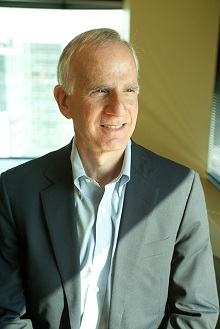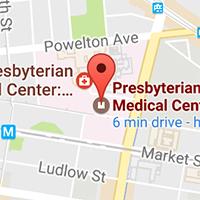Sponsors
Barry J. Gertz, MD, PhD
Partner, Clarus Ventures, LLC

Barry J. Gertz, is a Partner at Clarus Ventures, LLC, a leading life sciences investment firm. He serves as the Chief Physician Scientist at Nuvelution Pharma, Inc., a risk sharing platform company of Clarus. Prior to joining Clarus, he served as Senior Vice President and Head of Global Clinical Development at Merck, overseeing all aspects of Merck’s clinical research. While at Merck, Dr. Gertz was instrumental in the development and approval of more than 25 new drugs and vaccines, including the blockbuster products Fosamax and Januvia. Dr. Gertz has 30 years of experience in drug development, from exploratory clinical pharmacology to global phase 3 trials.
Dr. Gertz completed his undergraduate degree in chemistry at the University of Pennsylvania. He subsequently received his MD and PhD degrees in the Medical Scientist Training Program at the Perelman School of Medicine with his PhD in Pharmacology. His medical training included a residency in Internal Medicine at the Hospital of the University of Pennsylvania, and a fellowship in Endocrinology at UCSF, where he also held a faculty position.
In 2014, he established the Barry J. Gertz, C’73, GR’79, M’79, INT’82 and Laura B. Friedman Wilderness Medicine Fund at Penn. Dr. Gertz and Laura are outdoor enthusiasts and highly experienced wilderness backpackers. Dr. Gertz currently serves as a preceptor of wilderness medicine at the Perelman School. He is also an active member of the Perelman School’s Medical Alumni Advisory Council (MAAC) and joined the Board of Trustees in 2017.
Benjamin Sun, MD, MPP

Benjamin Sun is a Professor and Chair of the Department of Emergency Medicine in the Perelman School of Medicine at the University Pennsylvania. He is broadly interested in improving the delivery of emergency care. His research portfolio has included evaluation of syncope in the emergency department, identification organizational best practices to mitigate emergency department crowding, and evaluation of policy interventions to improve opioid prescribing. He is currently the principal investigator on an NIH funded study to assess the comparative effectiveness of testing and disposition strategies for the evaluation of suspected acute coronary syndrome. This is a prospective multisite study of over 100,000 patients who received an emergency department evaluation for chest pain within an integrated health system. He received his BA from Harvard College, his MPP from Harvard University, Kennedy School of Government and his MD from Harvard Medical School and Massachusetts Institute of Technology. He completed his residency at Harvard Emergency Medicine and completed an HSR fellowship at the Robert Wood Johnson Foundation Clinical Scholars Program at UCLA.
Department of Medicine, University of Pennsylvania

The Department of Medicine at the University of Pennsylvania is the nation’s first department of medicine, with origins dating back to 1765 when John Morgan, MD assumed leadership as the first department chair in the first medical school in the original thirteen colonies. It is the largest clinical department in the University of Pennsylvania Health System and the largest academic department in the University of Pennsylvania, comprised of 12 divisions with over 500 full-time faculty, an additional 125 Penn Medicine Clinicians, and over 250 associated faculty.

